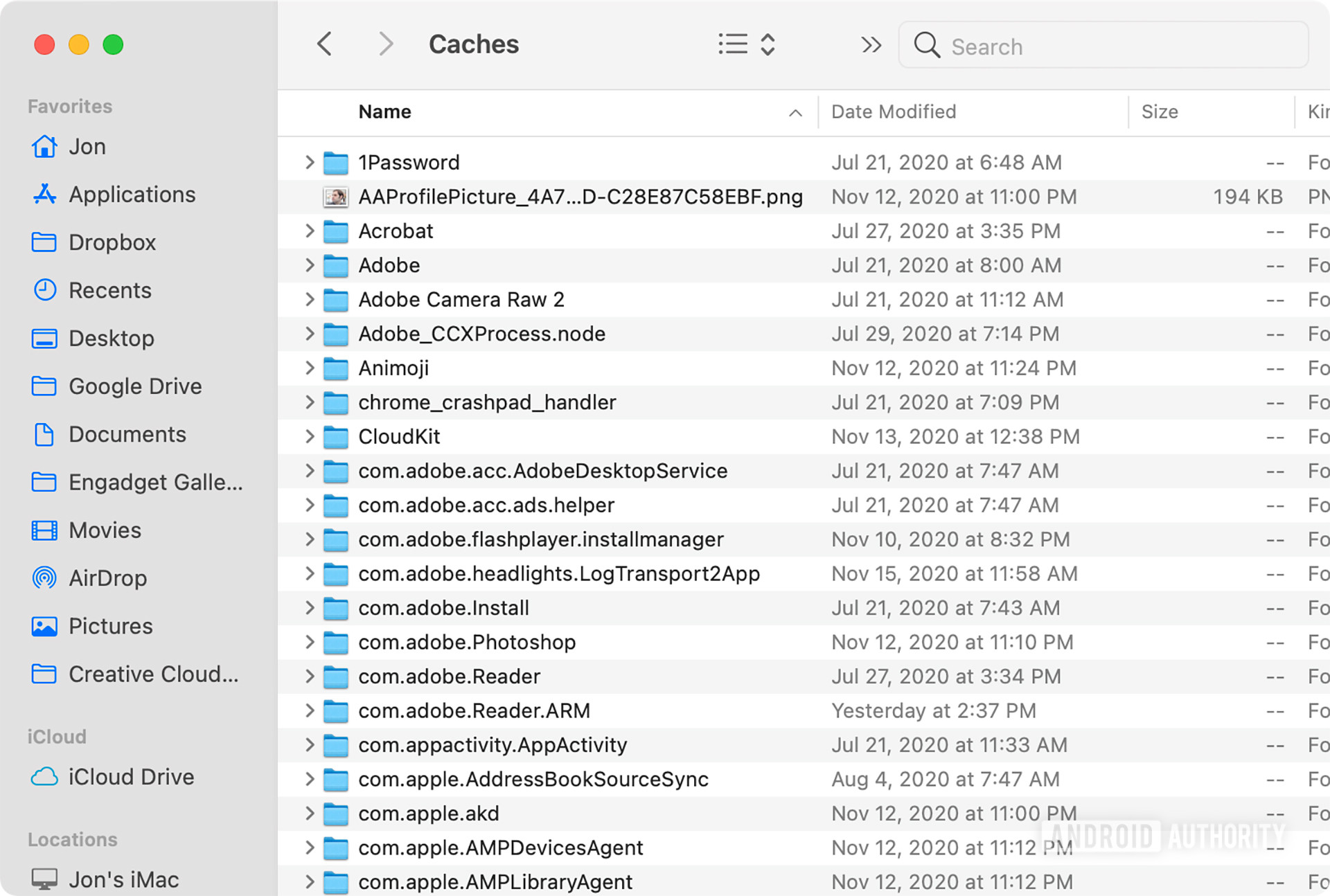Affiliate links on Android Authority may earn us a commission. Learn more.
How to clear your browser or system cache on a Mac
Published onMay 22, 2021
You’ve probably had moments where a cache on your Mac caused grief, such as a website that won’t load properly or a misbehaving app. It’s time to clear those temporary files. How is this done? Though it’s not a straightforward process, you also don’t need specialized software or tools. Here’s how to clear the cache on a Mac, whether it’s in Safari or in MacOS itself.
How to clear cache in Safari on a Mac

If your issues are limited to websites in Safari, clearing the browser’s cache is often enough. You can frequently clear all browsing data for a site with little effort, but that often deletes cookies that save logins and other details you might not want to lose. We’ll show you how to clear Safari’s cache using a hidden but useful feature.
- In the Safari menu, choose Preferences and select the Advanced tab.
- Tick the Show Develop menu in menu bar checkbox and close Preferences.
- Click the newly available Develop menu and choose Empty Caches.
- This deletes the cache for all sites. You shouldn’t encounter problems, although sites may take slightly longer to load.
More: The best Apple MacBook accessories
How to delete an app or system cache

If your Mac issues stem from an app or system feature that won’t run properly, you don’t always have to reinstall it. Sometimes it’s just a matter of deleting the appropriate cache. We’ll show you how to clear the app (aka user) and system cache on a Mac.
Before we begin, an important note: be careful. This can remove personalized data for apps, and some caches may need to stay. Only delete cache files if you know they’re likely to be the culprits and won’t create problems if they’re gone. It’s a good idea to start by backing up your computer and any app data you can’t afford to lose. Once you’re ready, this is how you clear the cache on your Mac.
- With Finder selected, click the Go menu and choose Go to Folder.
- Type in “~/Library/Caches” (without quotes) to view your system caches, or “/Users/[Your User Name]/Library/Caches” (replace [Your User Name] with your actual user name) to view app caches.
- You’ll see a list of folders for various app and system caches. Double-click a folder to view its caches. Do not delete the folders themselves.
- If you’re sure it’s safe to delete a cache, select the files inside a given folder, drag them to the Trash, and empty the Trash.
Next: Apple MacBook Air (M1) review | Apple MacBook Air 2020 review